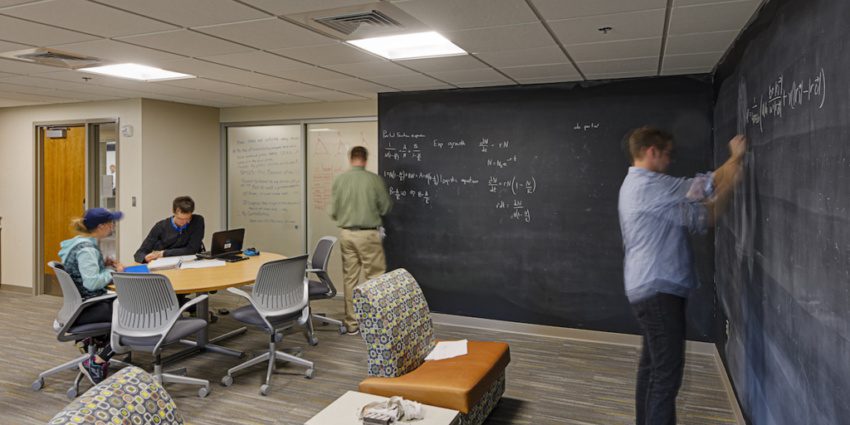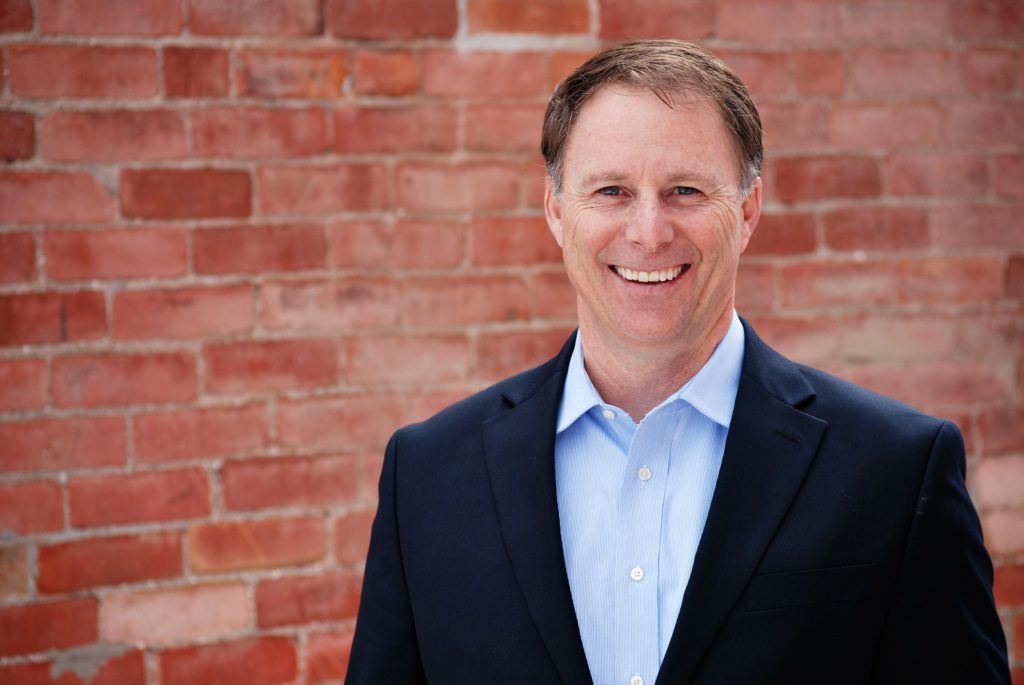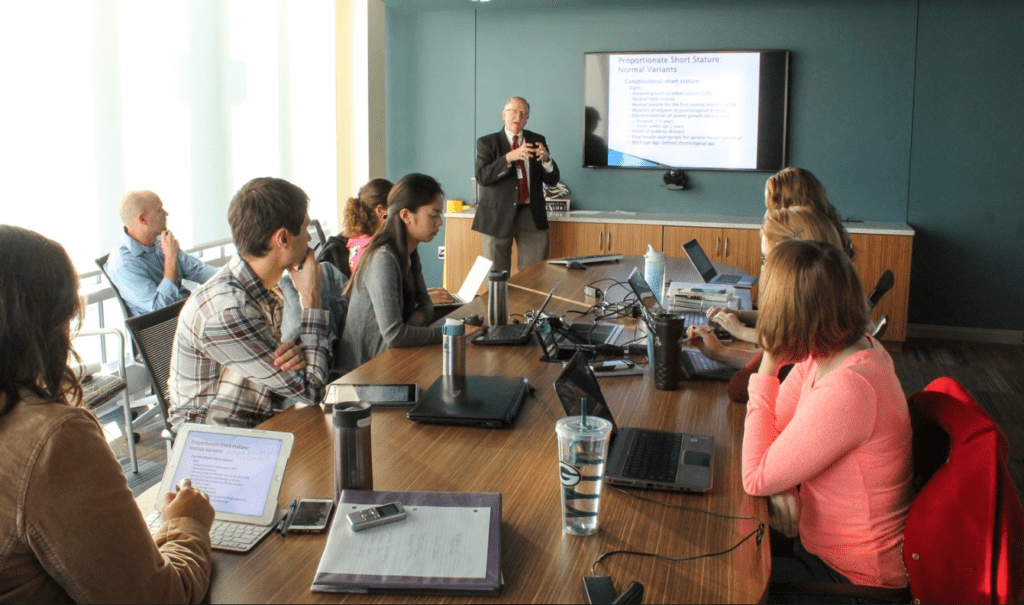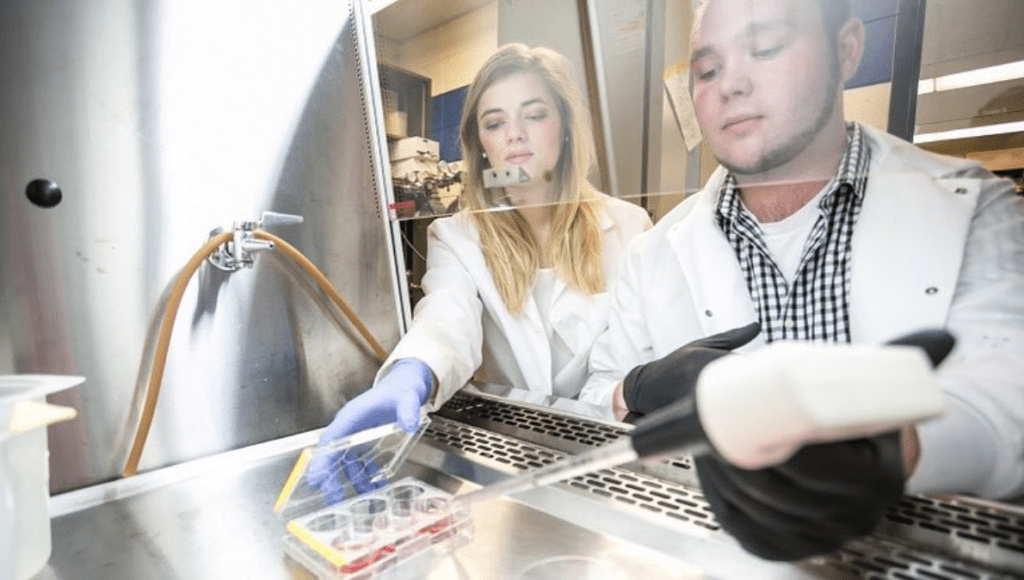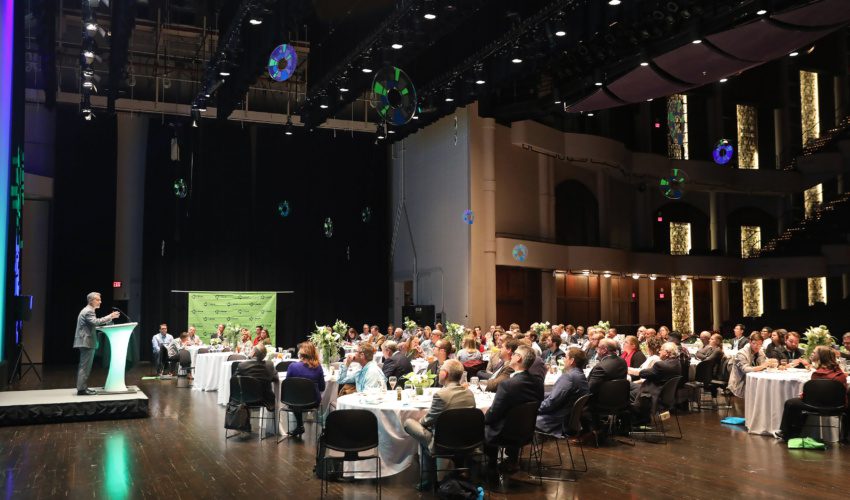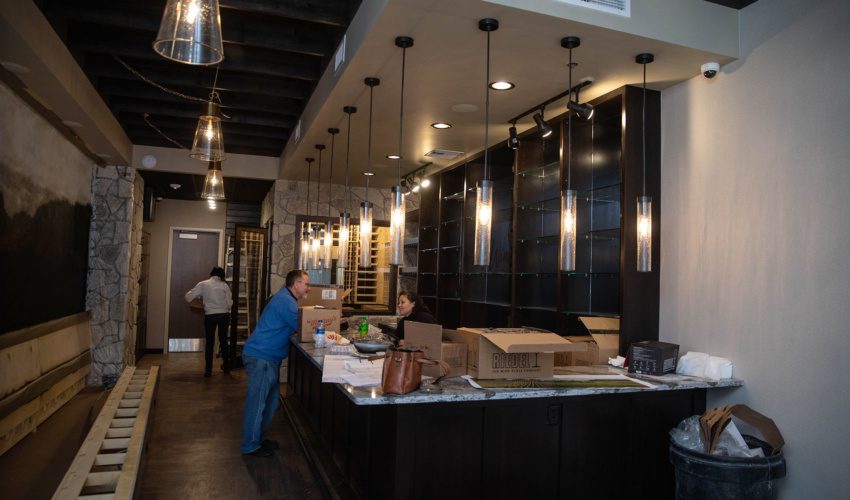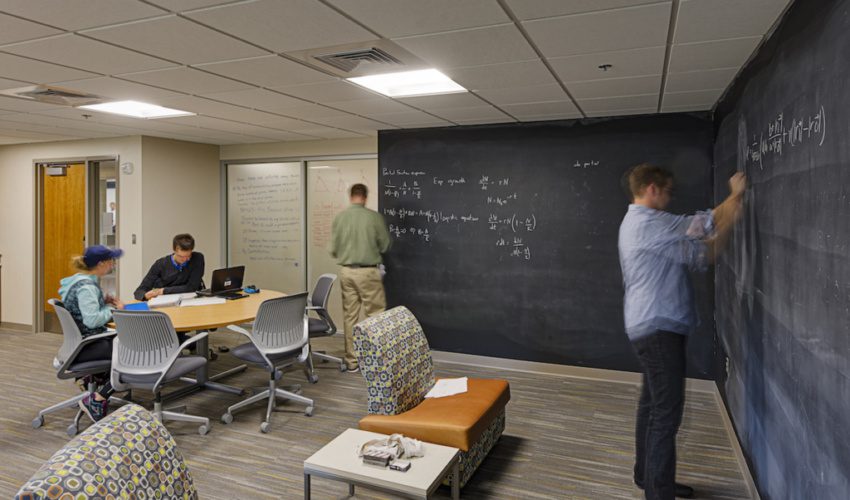Learning for the future to drive Augustana’s 2030 plan
March 28, 2019
This paid piece is sponsored by Augustana University.
Educating today’s workforce requires a fundamental shift in thinking about how students learn and how professionals work.
Harnessing the surprising synergies common to learning and working in the 21st century is at the heart of Augustana University’s 2030 vision and its plans to innovate and evolve in ways that serve students by serving local and regional communities.
In the modern workplace, office spaces and the organizations themselves increasingly are more fluid and dynamic. The pace of change in industry has required organizations and the people in them to be adaptable, malleable and empowering.
Contrast that to employers in the 20th century, where most jobs were process-driven outgrowths of the industrial era.
Universities used to reflect that time, too, as rigid schedules and settings pointed students toward set outcomes. Faculty lectured from the front of the room as students took notes and moved when a bell sounded.
The new model for a university points toward one that’s more open-ended, results-oriented and innovative.
“To prepare students to lead in today’s work environment, we need to help them learn how to learn, to learn how to adapt and to learn how to lead,” said Dr. Colin Irvine, Augustana’s senior vice president for academic affairs and dean of the university.
“We’re designing the university of the future with that in mind.”
As Augustana’s 2030 vision for academics takes shape, the university is pursuing a number of opportunities to serve students and better prepare them for their future. That includes:
- Exploring and evaluating unique and timely academic programs.
- Evaluating potential professional schools, including engineering, law and dentistry.
- Developing a premier program in the arts.
- Enhancing and strengthening each of these initiatives by tapping into the transformational power of technology.
“As part of Vision 2030, Augustana’s academic systems and structures will evolve in ways essential to empower and enable our students not to merely survive in this dynamic and evolving workplace but instead to thrive in it, to lead in it,” Irvine said.
“And while extraordinary changes are happening throughout higher education, Augustana is committed to making informed, intentional change.”
In evolving its approach to academics, Augustana will remain true to its foundation as an outstanding liberal arts institution, Irvine emphasized.
“It’s critical as we enter this planning phase – as we push up our periscope and scan the higher education horizon – that we remain vigilant about the fact there are no short cuts when it comes to learning,” he said.
“Students aren’t computers. They don’t download information. They learn, and learning requires an investment of time and energy and of the self, along with a commitment to make the process rewarding, relevant, applicable and inspiring.”
Even the notion of what it means to learn is changing.
“We are now entering the Post-Information Age,” Irvine said. “Every person with a cellphone has access to more information than an entire generation had at their disposal just one decade ago.”
Because of that, he continued, “information and access to information are no longer markers of academic excellence.”
“What matters now, more than ever, is how well one can learn to analyze, synthesize, evaluate and apply. And, as importantly, what matters is how well one can not only generate new ideas and analyze information in collaboration with others but also how well one can make that information, that data, make sense to others. Communication of information is key, and it goes hand in hand with critical thinking and with the ability to work well with and for others.”
Graduate education leader
Augustana’s 2030 vision includes becoming a regional leader in graduate education.
“We will seek out opportunities to develop integrated degree programs and unbundled, targeted opportunities for both traditional and nontraditional learners,” Irvine said.
Trends in higher education suggest universities must move away from equating seat time, fixed schedules and familiar, boiler-plate assignments with actual learning, he added.
“Future workers need to know how to adapt to change and embrace collaboration and how to deal well with unstructured problems. These skill sets are part of the foundation of a liberal arts education,” Irvine said.
“We will explore and evaluate more online programs, more low-residency, hybrid programs and more interdisciplinary programs. We’ll also examine the idea of offering credentials and degrees tied to outcomes and sensibilities, such as leadership or analytics, and we will likely consider intensive microcurriculums focusing on specific problems such as diseases or environmental issues.”
In addition, offerings will be developed in consultation with community partners.
“We want our students to begin to succeed, lead and contribute while in college as well as throughout their careers.”
High-impact practices
To understand the framework for Augustana’s 2030 plan in academics, it helps to know about high-impact educational practices.
These practices include instructional methods such as study-away and study-abroad programs, internships, undergraduate research, learning communities, collaborative assignments and common intellectual experiences.
These educational methods are already present at Augustana, but the future vision will hone in on how the experiences are integrated in ways that can both transform the students while preparing them for their future.
“Anyone with sufficient financial resources can travel to London or India, and anyone can do research or work part time in an office here in Sioux Falls or elsewhere. The key, the variable that makes these experiences important and potentially impactful, is how we prepare our students to engage these opportunities and, after the fact, to reflect on them in the context of their education,” Irvine said.
For instance, students completing internships are prepared by their courses and Augustana’s professional counselors to contribute and learn in the workplace rather than merely observing in it.
Similarly, when the students study abroad or engage in service learning, they are equipped to undertake these opportunities in ways that make their varied and wide-ranging encounters meaningful, dignified and educated.
That approach already is effective, and Augustana will build on it moving toward 2030.
“The effect of these experiences is powerful on students and the university, as well as on the many communities that host the students and, to some extent, their faculty,” Irvine said.
“Amazingly, experiential learning, when undertaken properly, offers the potential to convert nearly all student experiences into educational encounters marked by lasting learning and unforgettable memories.”
In the field of applied research, for instance, Augustana wants to build on one of its many demonstrated strengths by working with community partners to identify challenges, issues and even potential problems that can serve as a basis for student projects.
“Turning these kinds of issues into the focus of research and the curricula for courses serves the community while at once allowing students to present their work to authentic audiences who may likely find it real and valuable,” Irvine said.
“This, in turn, ensures that Augustana students graduate prepared to contribute on day one of their career. It also equips them with the kinds of seasoned communications, critical thinking and creative problem-solving skills needed in today’s workplace.”
Augustana will spend the remainder of the year developing a strategic plan, including drafting priorities and milestones, researching and recommending specific objectives.
“While Augustana’s education will continue to be rooted in the liberal arts, it will in the coming years be increasingly enriched by experiences that prepare students to accept and assume the many leadership needs and opportunities that come their way,” Irvine said.
To learn the latest developments in Augustana’s 2030 planning process, click here and keep watching SiouxFalls.Business.

